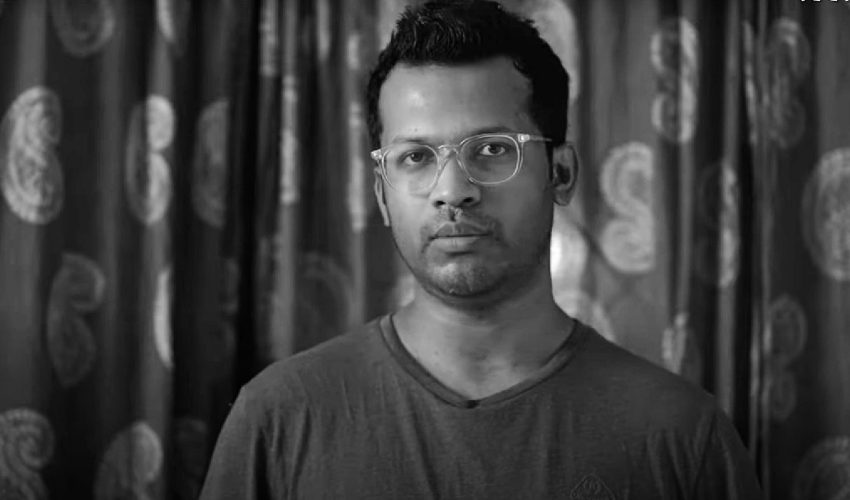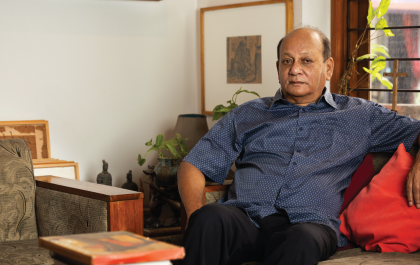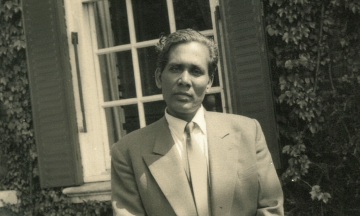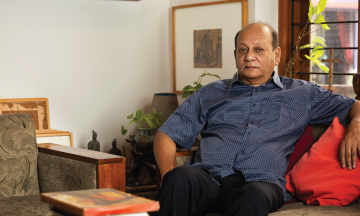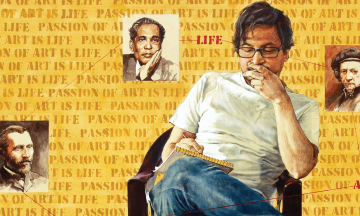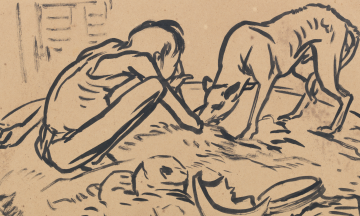The reclusive film-maker opens up about his process
By Ayman Anika
A wise and exceedingly cool man named Stephen King once said: “Quiet people have the loudest minds,” and we have a fitting example of his saying in our very own showbiz. There are auteurs whose public personas loom as large as their work. And then there are the ones who prefer to place all the spotlight on their craft, and remain behind the scenes as their legacies speak for themselves. Ashikur Rahman falls squarely in the latter category. You’ll be hard-pressed to find much press hullaballoo about the TV director, and little is known about his personal life, but his considerable body of work, be it Jodi Ami na Thaki (2020) or Bivranti (2022), leaves a lasting impression.
MWB was fortunate enough to bag him for a chat about work.
What made you get involved with film-making in the first place?
During my high school years, I had been involved with theatre. I started my career with Prachyanat School of Acting and then I joined the Palakar theater group in 2006. After that, for about ten years, I focused on theater. Then during my university life, I assisted Redoan Rony for a number of projects. After gathering a few years of experience, I directed my first TV feature film in 2010, named Punorabritti. I continued with my theater involvement until 2015.
This is how I started my career as a director. I would love to get even more involved in it.
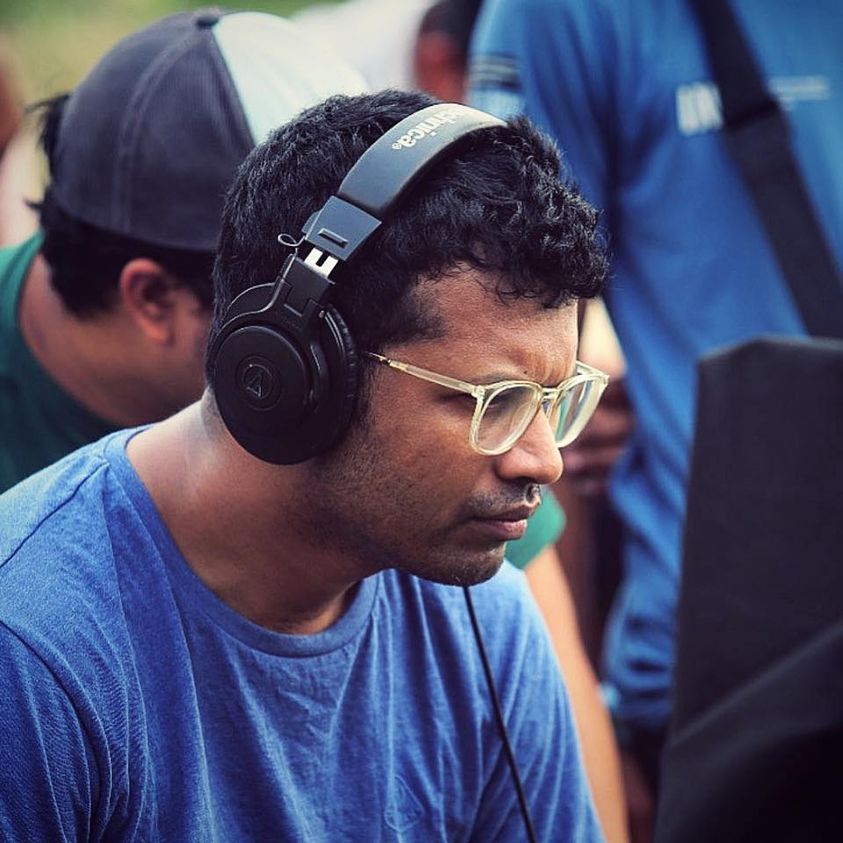
We’ve been told that you prefer to keep a low profile. Do you think this restricts the scope of your work or the range of artists you can work with?
No, I don’t believe so. I think I can explore myself differently. If you’re involved with a project or produce work regularly, you get a certain type of outcome. The same fact applies to you if you’re working on a project intermittently.
If I feel it is convenient enough or I like an idea, I at once work on that project – for example, Jodi Ami Na Thaki (2020). Then again, my last telefiction Shada Private (2022), based on the book by Isteaque Ahmed as part of Bongo BOB anthology, did well and was appreciated by many. It was a very rewarding experience as I got to work with six other talented directors namely Shihab Shaheen and Vicky Zahed. Altogether, there were seven telefictions and each of them had its own unique stories and flavors.
This year, I have directed another project and it is due this Eid-ul-Azha. Essentially, I see my works as a way to communicate, channel my creativity, and get acquainted with brilliant artists. But to be honest, I guess I maintain a low profile because I am a private person.
What do you enjoy the most about film-making?
The part I enjoy the most about film-making is creating the film itself. I feel immensely happy and at peace when I can see my imagination turning into reality through visual representation. New ideas always roam inside my head – the location, space, characters, shots – they fascinate me and I always try to give them a real shape. Who doesn’t like to see their creations in front of their eyes? I wholeheartedly enjoy this process; it offers me great pleasure.
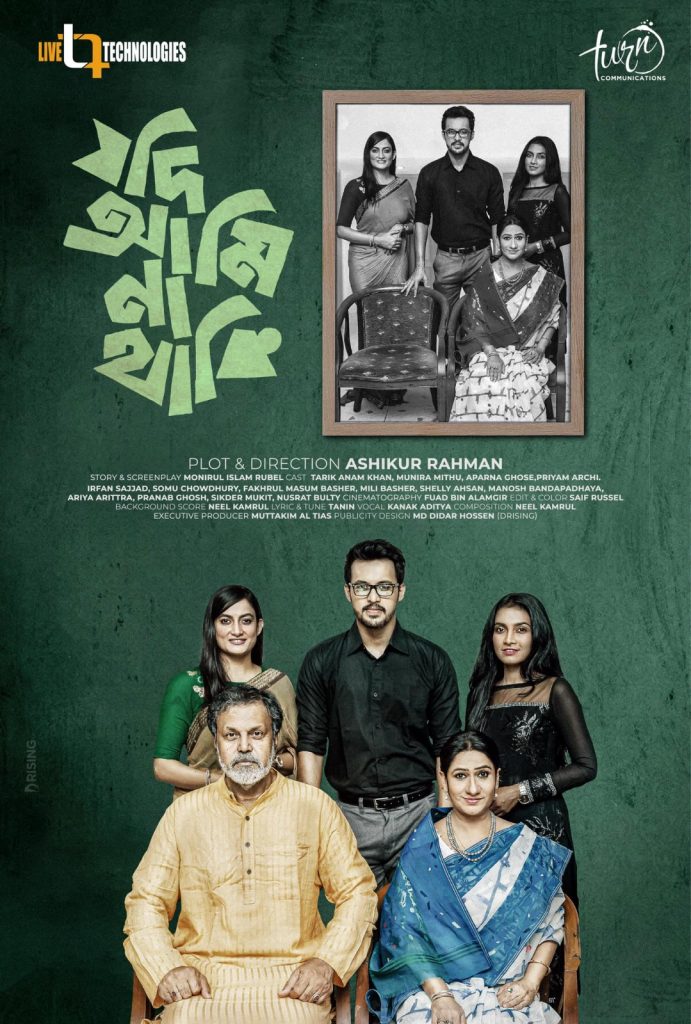
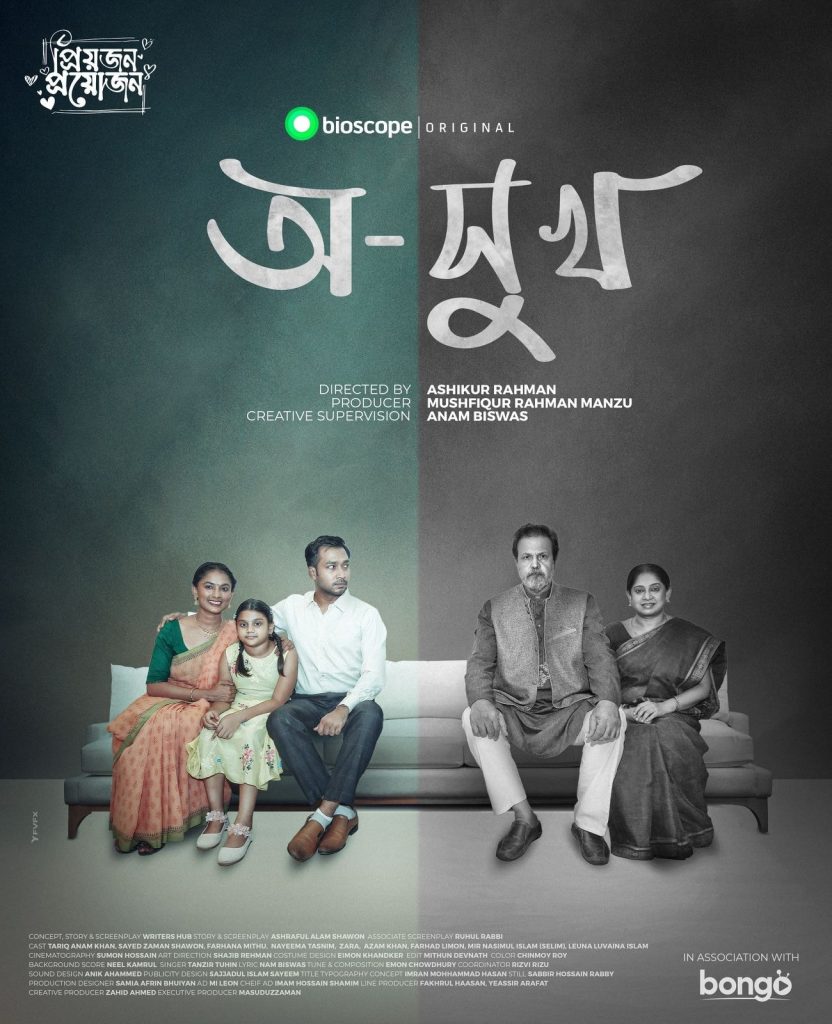
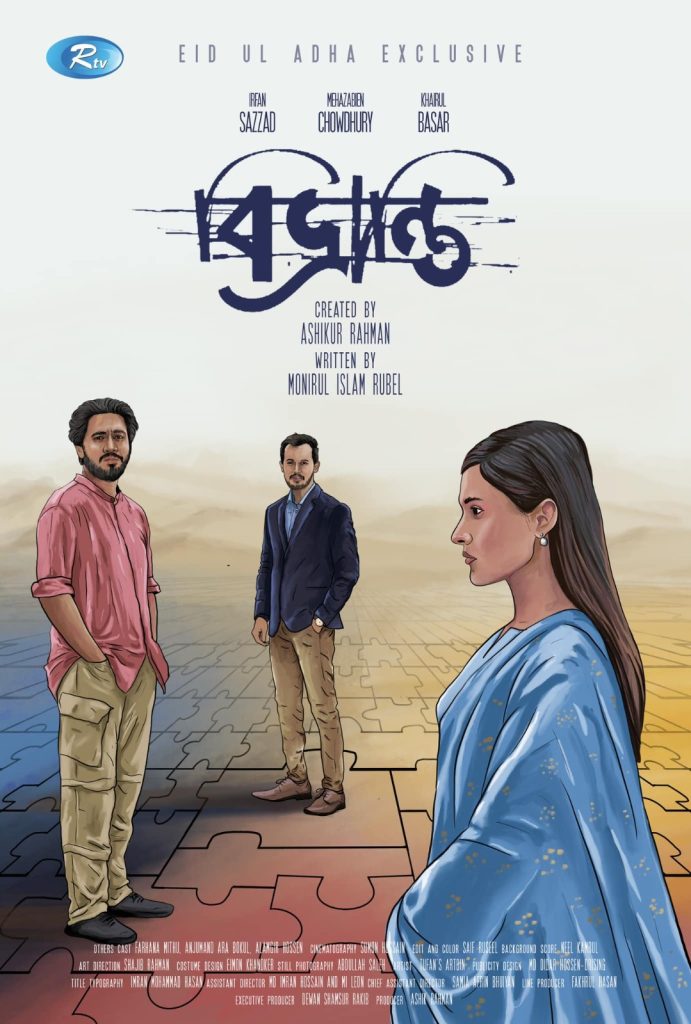

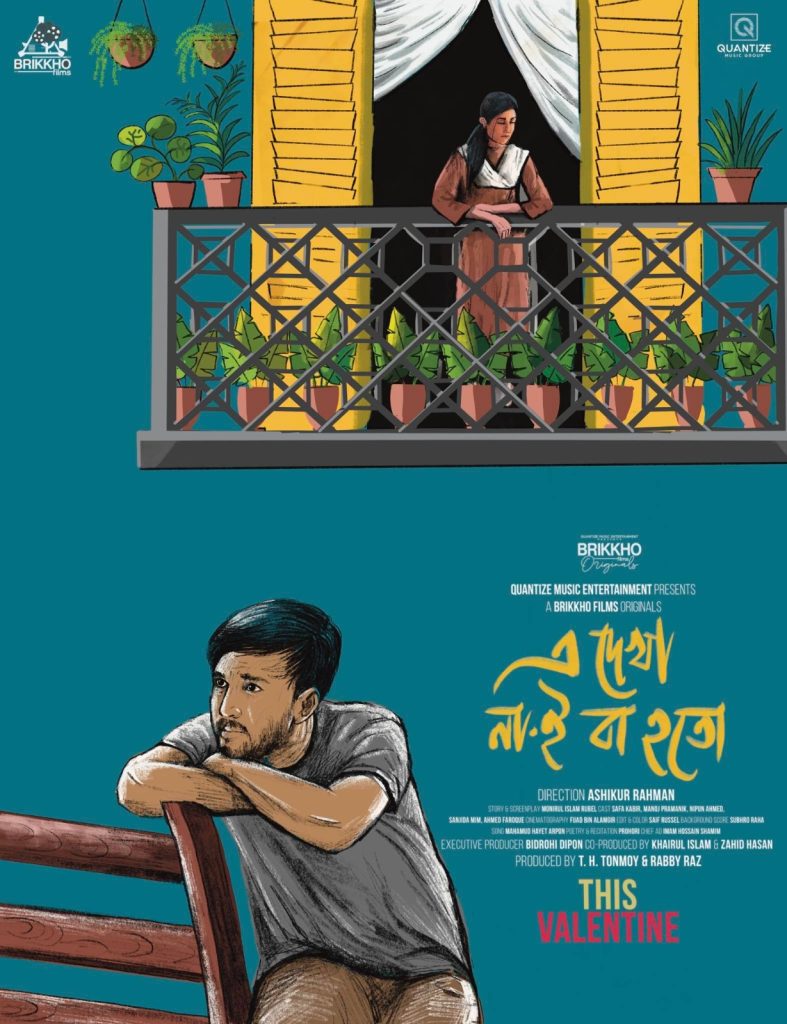
Who do you consider your inspiration/who is your favorite director?
I can’t name a single person who has been my sole inspiration. Rather, I have been inspired by many directors and the revolutionary ideas that came into our industry. When I was completing my intermediates, I saw a change taking place in our media industry. After BTV, Ekushey Television introduced a new form of telefictions – these had been packaged telefictions and numerous directors, namely Mostofa Sarwar Farooki and Nurul Alam Atique, adopted a different practice to make them.
I was involved in theater at that time, but their way of film-making largely influenced me. Their works changed my perspective, and I started to watch films from a different angle. Yes, other great directors from our Subcontinent such as Ritwik Ghatak, Satyajit Roy, Mrinal Sen inspired me a lot. Apart from that, I am highly fascinated by so many filmmakers around the world like Akira Kurosawa. Abbas Kiarostami, Kim Ki-duk, Wong Kar-wai and Asghar Farhadi, Jafar Panahi, Nadine Labaki, Nuri Bilge Ceylan.
You have done many collaborations with Tariq Anam Khan. What is the best part about working with him?
Tariq Anam Khan is undoubtedly a man of letters, and I cherish the valuable insights that he has shared with me. It has been a blessing for me that I got to work with such a wise and talented actor. Our telefiction Shada Private (2022) gained massive popularity. And whenever Tariq Anam acts, he also guides other actors; he also shares his thoughts on how to make the story more engaging and how it can reach the audience.
He always participates in constructive discussions with us and can strengthen team spirit among us. I feel very lucky to have worked with him. He is truly an inspiring figure.
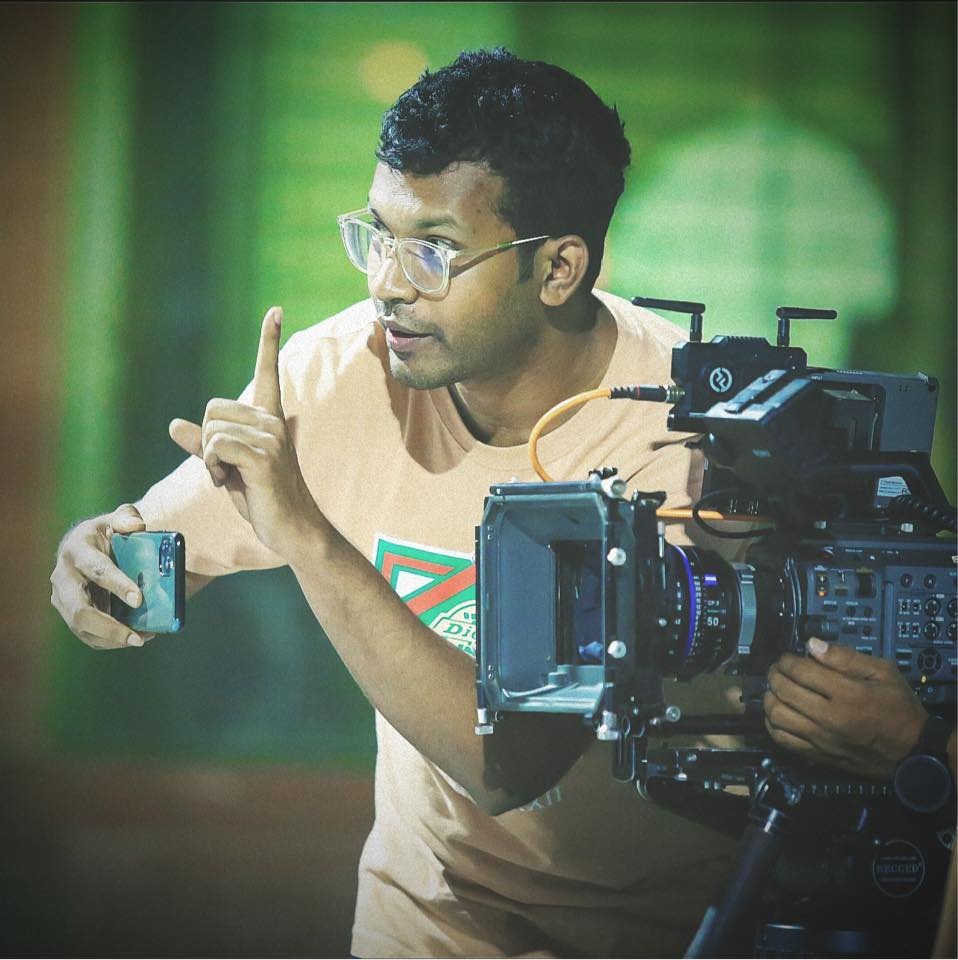
Among the up-and-coming directors in our industry, who do you think has showcased extraordinary potential?
I think Nuhash Humayun is a brilliant director among the up-and-upcoming directors and his recent OTT series Pett Kata Shaw (2022) is utterly mind-blowing. I want to name three more filmmakers who I admire most: Abdullah Mohammad Saad, Syed Ahmed Shawki & Ashfaque Nipun who have shown exceptional potential.
What is your opinion about OTT platforms?
I am planning to work on OTT platforms soon and am in talks with relevant parties. And honestly speaking, OTT platforms give you enough budget and space so that you can complete and exhibit your works more expansively.
Would you like to share some updates about your upcoming projects?
Presently, I am working on my upcoming project for Bongo BOB, named Gorvo, and another miniseries of mine is in the pipeline – a story based on cross-border relationships. I am also working on a couple of small projects, including a web film. But frankly speaking, I am taking a break due to personal issues; perhaps, I will again start working in full swing by the end of this year or next year.
- tarin fatema
- tarin fatema
- tarin fatema
- tarin fatema
- tarin fatema
- tarin fatema
- tarin fatema
- tarin fatema
- tarin fatema
- tarin fatema
- tarin fatema
- tarin fatema




